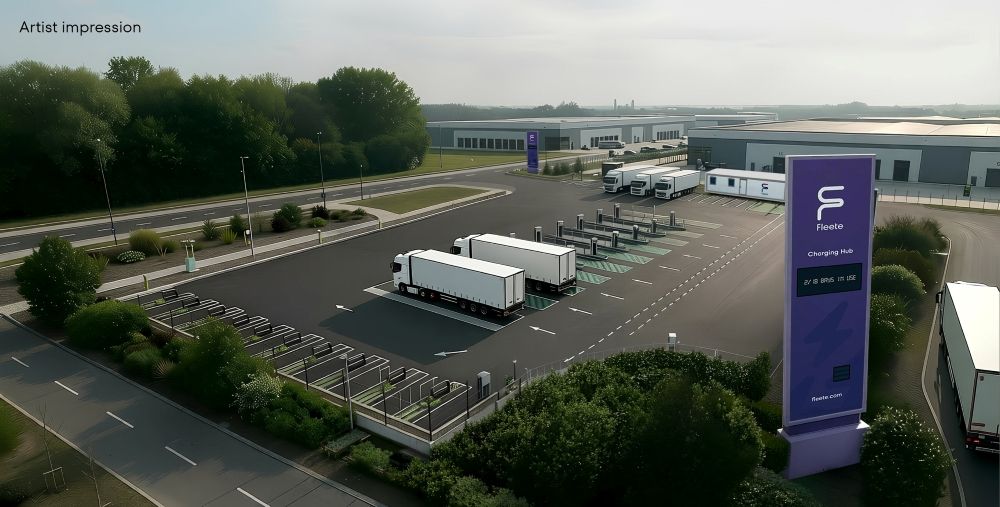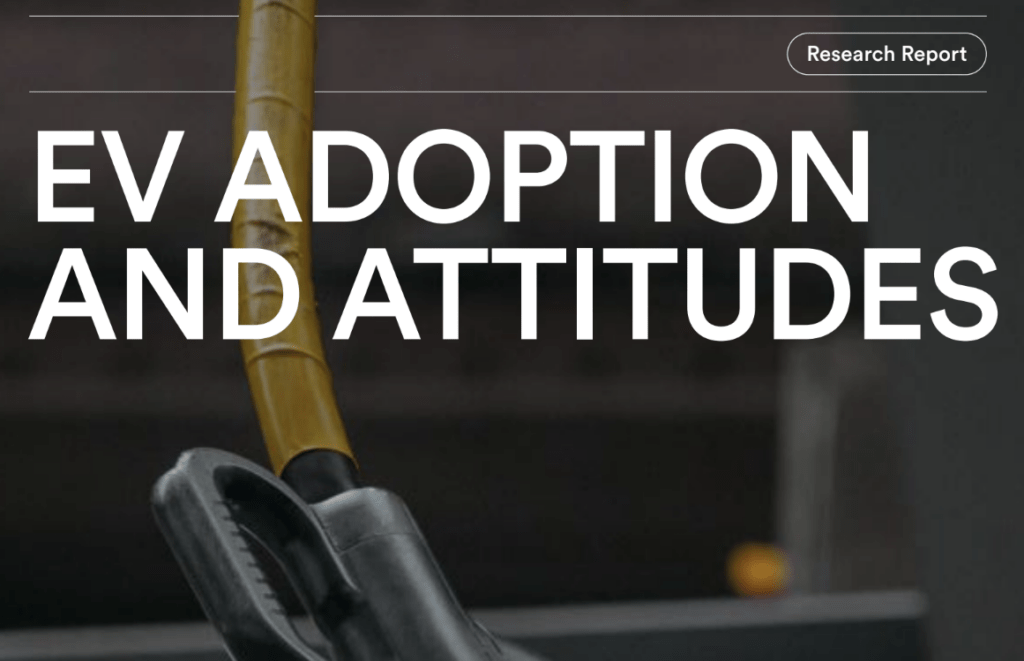Electric vehicles and clean energy were part of the first Budget in 14 years from a Labour government, announced by Chancellor of the Exchequer Rachel Reeves.
Reeves, who raised £40bn through tax rises in the Budget, said she wanted to make Britain a “clean energy superpower.” Alongside the £22bn funding for Carbon Capture and Storage (CCS) projects previously announced, there would be 11 new green hydrogen projects across England, Scotland and Wales. These will be amongst the first first such projects in the world, according to Reeves.
In addition, the Budget announced £500m in the roads maintenance budget for next year, “more than delivering on our manifesto commitment” on potholes, Reeves said.
There was also £650m for local transport funding to improve connections across the country “from Cornwall to Cumbria”, and £1.3bn for city transport funding, including the West Yorkshire mass transit scheme.
Some £3.4bn was also added onto the Warm Homes fund to transform 350,000 homes, and make them more energy efficient. Reeves said alongside establishing GB Energy, overall the goverment will be investing an additional £100bn in capital spending.
Electric vehicle incentives
One of the other key points from Reeves was that the government would be maintaining tax incentives to purchase electric cars through Vehicle Excise Duty First Year Rates and the Company Car Tax regimes, as well as by extending 100% First Year Allowances for electric cars and charge points for a further year.
In its Budget document, it said EVs were “crucial to decarbonising transport and will support growth and productivity across the UK”. It also said it was “committed to phasing out new cars that rely solely on internal combustion engines by 2030 and that from 2035 all new cars and vans sold in the UK will be zero emission”.
Funding commitments included more than £200m in 2025-26 to accelerate the EV charge point rollout, including funding to support local authorities to install on‑street chargepoints across England. It will also provide £120 million in 2025‑26 to support the purchase of new electric vans via the plug‑in vehicle grant and to support the manufacture of wheelchair accessible EVs.
Gigafactories were also mentioned as part of the Modern Industrial Strategy, due next spring, as part of the sectors with the most potential for growth. £1bn for the aerospace sector was also provided to undertake development, as well as £2bn for the automotive sector, to build on the research and development across the north and Midlands.
Fuel duty
Reeves also highlighted a fuel duty freeze for next year, which would reduce the cost of petrol and diesel by around 7 pence-per-litre, as well as local government being provided with £1.3bn grant funding for services.
She also said how the rise in National Insurance Contributions (NIC) from employers, with a 1.2% point rise, would be raising a multi-billion pound sum per a year for public infrastructure.
In terms of planning, which is often critical for the future development of electric vehicle charging infrastructure, Reeves announced that there would be funding for “hundreds of new planning officers” across the country.
Renewal
Reeves said: “On July 4, the country voted for change. This government was given a mandate […] to begin a decade of national renewal.”
“An economy that is growing creating wealth and opportunity for all […] the only way to drive economic growth is to invest, invest, invest.”
Reeves also announced that the government would implement in full the 10 recommendations from the Office for Budget Responsibility’s review.
Industry reaction:
Om Shankar, General Manager & Vice President, Konect (EV charging provider):
“The government has previously stated its aim to accelerate the rollout of electric vehicle charging, but the budget falls woefully short in this area.
“We need a 500% increase in public EV chargers between now and the end of the decade to meet our stated goals and projected EV demand.
“Consultation is one thing, but sooner or later the government needs to show its hand. Some urgent action and lateral thinking on location of charge points and support for operators is needed.”
James Court, CEO of EVA England, says:
“It is great to see the Chancellor backing electric vehicles in her Budget, with both an extension to the company car tax and changes to VED, as well as backing British industry with 2bn for manufacturing EVs. Additional funding for charge point infrastructure is also good news for current and future EV drivers as the UK continues to push forward the transition to a cleaner transport system.”
Mike Peirce, Executive Director of Systems Change at Climate Group, says:
“The Chancellor’s decision to continue the fuel duty freeze while not reducing the VAT on EVs is a major missed opportunity to push forward the UK’s transition into a zero-emission transport future and clean air for all. Changes to the first-year tax rates that slightly favour EVs over internal combustion engine (ICE) cars are welcome, but not nearly bold enough to incentive the mass uptake of EVs we need.”
Asif Ghafoor, CEO of national EV charging network Be.EV:
“We welcome the news about the maintenance of incentives for electric vehicles in company car tax which account for 40% of all vehicles on the road. This is the easiest and quickest way to accelerate the EV transition is to get companies and employees to switch to EVs en masse.
“The £2 billion investment into the EV sector manufacturing is also welcome. There’s no need to spend £200 million on charging – key charge point operators in the private sector have already committed £6bn to drive the sector forward. Anything which gives us more confidence to deliver this funding is welcome.”
“The only way to speed up the EV transition is to get people to feel good about EVs again. We don’t need money but the next thing the Government to do is to finally bring the 2035 ban back to 2030 as promised and get the transition going even faster.”
Paul Hollick, chair, Association of Fleet Professionals, said:
“The big news in the Budget is the announcement on company car tax rates until 2030, something on which we have been campaigning for some time. With the massive swing towards electric cars seen in the fleet sector in recent years, there was perhaps an expectation that we would start to see benefit in kind begin to creep upwards and I these figures are probably at the lower end of our expectations. This new certainty around tax will, in our opinion, maintain the ongoing electrification of car fleets, especially in establishing a marked differential compared to hybrids. Similarly, the increased differential in first year tax rates for electric cars is to be welcomed although, being a one-off cost, will have a much more limited impact.
“The other major element is the surprise ongoing freeze in fuel duty when a removal of the five pence discount was widely predicted. Petrol and diesel prices are historically quite low but this remains good news for fleets who are working hard to keep their spending under control.
“With these two measures, it does seem like a potentially promising start for this government and its policy towards fleets. However, there remains quite a long list of issues that we would like to see resolved in the short-medium term – ranging from 4.25 tonne electric van derogation through to ongoing difficulties surrounding the ZEV Mandate. Conversations covering at least some of these problems are underway and we await their outcome with interest.”
Robin Heap, Founder and CEO of EV charging network Zest, commented:
“Today’s Budget provided the tonic EV businesses like ours had been hoping for. The Chancellor made a positive commitment to maintain incentives for the EV transition to keep growing, as well as reaffirming their manifesto pledges on phase out dates. This will in turn enable faster deployment of public chargers and is welcome.
“The Treasury’s policies to reform planning will boost the green sector, and while it may take a while to trickle down, it is a solid start to help the estimated third of drivers over the medium to long-term who won’t have access to home chargers. For those families, availability of on-street charging will be crucial, as a poll by Zest demonstrated recently revealing 60 per cent of Londoners will be looking at public charger availability if moving house over the coming five years.”
Ian Johnston, CEO, Osprey Charging Network:
“It’s fantastic news that the government is maintaining tax benefits for working people who lease or buy electric cars, as these are vital to incentivising more consumers to drive electric and to continue the growth of ‘private driver’ EV sales. We look forward to seeing the government maintain a strong ZEV Mandate this autumn to allow the UK to truly realise the multi-billion pound opportunity the e-mobility sector can bring to the UK.”
Reza Shaybani, Co-Founder and CEO of The EV Network, said:
“We are pleased to see the Chancellor recognise that EVs will power the country towards net-zero through significant investment for the automotive industry and incentives for companies transitioning to EVs. To fulfil the government’s commitment to meeting the 2030 electric vehicle target, the next five years will be central in furthering the robust, future-proof national electric vehicle charging infrastructure network that can be accessed by individuals and fleets no matter their location. Labour now must build on its support for the automotive industry and invest in the vital infrastructure that is being scaled across the country to ensure the UK achieves a fit-for-purpose supercharged highway.”
Sue Robinson, Chief Executive of the National Franchised Dealers Association (NFDA):
“NFDA welcomes the Government’s recognition of the importance of electric vehicles in this year’s Autumn Budget. The Chancellor announced the maintenance of existing incentives for EVs in company car tax from 2028. It is crucial that, with the ZEV mandate target set to rise to 28% next year and lagging private demand, there is continued investment in EV infrastructure to help drive adoption across the sector. There was also mention in the Budget of the Government’s commitment to phasing out new internal combustion engines cars by 2030.”
Yselkla Farmer, CEO of BEAMA, the UK trade association for energy infrastructure and systems, said:
“The Chancellor’s budget has stepped up urgently needed investment tackling the UK’s key decarbonisation heating and transport challenges. Reaffirming the £3.4bn Warm Homes Plan investment is positive but it is essential the Government fleshes out the practical details of its approach with cost-effective, impactful measures such as on heating controls and improving indoor air quality to protect health.
“Incentivising EV uptake for company cars through tax relief is positive for decarbonising transport and alongside the £2bn for UK EV manufacturing will boost this vital sector. However, the freezing of fuel duty continues to send mixed messages to motorists.
“Making big investment pledges sends a valuable political signal but the Government urgently needs to grasp the nettle on trickier details that will drive decarbonisation in people’s lives and bring long term financial and quality of life benefits. The UK’s £14bn turnover Net Zero supply chain is ready to support this but needs a more ambitious policy and regulatory framework to match these financial signals.
“The commitment to 1.5 million new homes is encouraging, but immediate clarity is needed on the Future Homes Standards is crucial so that developers and housebuilders, especially SME housebuilders, can cost and plan accordingly for future much needed housing developments.”
Trevor Hutchings, Chief Executive of the REA (Association for Renewable Energy and Clean Technology), said:
“We welcome the Chancellor’s Budget as a significant step forward, underpinned by ambition and a commitment to strengthen the UK’s green economy. The shift in fiscal rules to unlock investment signals a bold departure from previous approaches, opening pathways for new infrastructure and sustainable growth.
“The confirmation of policies like the Carbon Border Adjustment Mechanism, the Warm Homes Plan, and GB Energy funding, along with continued support for electric vehicles and increased funding for the Boiler Upgrade Scheme, all represent positive leaps forward. Yet, there are missed opportunities to drive more ambitious outcomes, such as increasing the Fuel Duty rate and Carbon Floor Price, which could accelerate our transition to net zero.
“The renewable energy and clean tech sector is a driver of sustainable growth, international competitiveness and prosperity. We stand ready to work with the Government to build on today’s announcements.”
BVRLA Chief Executive, Gerry Keaney, said:
“This was a complex budget at a difficult time. The increase to employers’ national insurance will have a substantial impact on businesses and their customers. The full scale of its impact will only be seen in time.
“For our sector, the Chancellor has left many challenges unresolved. As penalties to stay in ICE vehicles ramp up in line with the ZEV mandate, more needs to be done. The barriers relating to the rental sector, charging infrastructure, consumer education and the used EV market, all need close attention.
“The Budget did bring some green shoots of positivity, suggesting that the government is taking the UK’s transition to cleaner, greener vehicles seriously. The confirmation that the fair EV company car tax regime will be continued at least to 2030 is a positive step, supporting a vital contributor to the transition and a bright spot of success up to now. Extending the Plug-in Van Grant provides the sector with a much-needed boost.”
More reaction to follow…..
Image from Shutterstock












